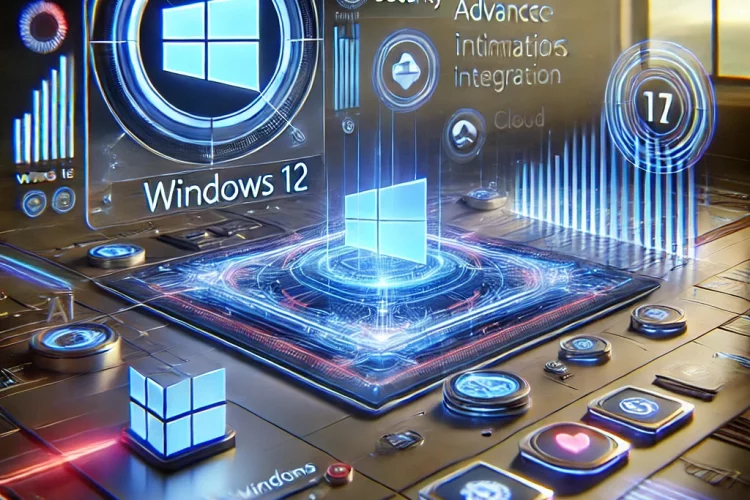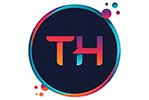
Windows 12: What to Expect from Microsoft’s Next Operating System
As the tech world buzzes with rumors and speculation, Windows 12 is shaping up to be one of the most anticipated operating systems in recent years. While Microsoft hasn’t officially announced a release date, insider leaks and expert predictions give us a glimpse of what might be included in the next iteration of Windows. This article compiles the most credible rumors and potential features of Windows 12, offering insights into what users can expect.
1. Release Date: When Will Windows 12 Launch?
While there hasn’t been an official release date for Windows 12, industry insiders suggest that Microsoft may aim for a release in late 2024 or early 2025. Windows 11 was launched in October 2021, so a similar timeline for Windows 12 fits with Microsoft’s typical development cycle of releasing a major update every 3–4 years.
2. Modular Design and Cloud Integration
One of the most exciting rumors surrounding Windows 12 is the possibility of a modular design, where the operating system can be customized and scaled based on the hardware it runs on. This could make it more versatile, allowing lightweight versions for lower-end devices and more robust features for powerful PCs.
In addition, Windows 12 is rumored to push even further into cloud integration, making cloud-based computing a core part of the experience. This aligns with the industry shift toward hybrid cloud systems, making it easier for users to access their data from anywhere while leveraging Microsoft’s cloud infrastructure.
3. Enhanced AI Features: A Smarter OS
Artificial Intelligence is expected to play a major role in Windows 12. Similar to how AI is transforming industries, Microsoft is likely to integrate more AI-powered tools directly into the operating system. Current rumors suggest that Windows 12 could feature advanced AI tools to enhance productivity, such as:
- Smarter Task Management: AI could help prioritize tasks, optimize workflows, and provide intelligent suggestions based on user habits.
- Personalized Experience: AI could analyze how users interact with their devices and tailor system performance or UI elements to enhance usability.
- Voice Control & Cortana Revamp: Expect an overhaul of the voice assistant experience, possibly integrating advanced AI-driven features for hands-free control of the OS.
4. New User Interface (UI) Design: A Fresh Look
Leaks and insider tips suggest that Windows 12 may introduce a more refined and modernized user interface. Early concepts indicate a sleek, minimalist design with enhanced customization options, allowing users to personalize the look and feel of the OS.
Key changes may include:
- Floating Taskbar and Start Menu: Similar to concepts we’ve seen in Windows 11, but with more flexibility and smoother transitions.
- Improved Widgets and Quick Access: Widgets are expected to be more interactive and provide users with real-time information tailored to their preferences.
- Fluid Animations and Transitions: A smoother user experience with more visually appealing effects.
5. Increased Security Features
With cybersecurity threats becoming more sophisticated, Windows 12 is rumored to introduce enhanced security features aimed at protecting users’ data and privacy. These may include:
- AI-Powered Threat Detection: Leveraging AI to detect suspicious activities or malware in real-time, providing enhanced protection.
- Advanced Encryption and Authentication: Better encryption protocols and biometric authentication options to ensure user data remains secure.
- Zero Trust Security Model: Microsoft has been advocating for Zero Trust security, and Windows 12 could implement this model more deeply, focusing on identity protection and least-privileged access.
6. Better Performance and Battery Optimization
One of the common complaints with Windows 11 was its heavy resource demand, particularly on older hardware. Windows 12 is expected to focus on better performance optimization, especially for laptops and mobile devices. Some of the improvements we might see include:
- Adaptive Performance Tuning: Windows 12 may use AI to dynamically adjust system performance based on what you’re doing, optimizing power usage and reducing CPU load.
- Improved Battery Life: This could be achieved through better management of background processes, especially in portable devices like laptops and tablets.
7. Gaming Features: Enhanced Experience for Gamers
Microsoft is likely to double down on its support for gamers with Windows 12, especially with the growing popularity of PC gaming and cloud gaming services like Xbox Cloud Gaming (formerly Project xCloud). Some expected improvements include:
- DirectStorage Expansion: Reducing game load times by bypassing the CPU and allowing the GPU to load assets directly from the SSD.
- Better Game Optimization: Improved integration with Xbox services and enhanced support for gaming peripherals.
- VR and AR Support: Windows 12 might come with built-in support for Virtual Reality (VR) and Augmented Reality (AR) gaming, leveraging Microsoft’s existing work with HoloLens and mixed reality.
8. Compatibility and System Requirements
While it’s unclear whether Windows 12 will raise the bar for system requirements compared to Windows 11, there’s speculation that Microsoft could continue pushing users toward more modern hardware, such as TPM 2.0 and Secure Boot. However, if the modular approach materializes, Windows 12 could offer a more scalable option, allowing a version that runs smoothly on lower-spec hardware.
What to Expect in Windows 12
Though still in the realm of speculation, Windows 12 seems poised to bring significant improvements across the board. From enhanced AI features and cloud integration to better performance and security, Microsoft is likely gearing up to deliver an operating system that not only caters to today’s demands but also anticipates future needs.
Keep checking back for more updates as we learn more about Windows 12 and its official announcement!





